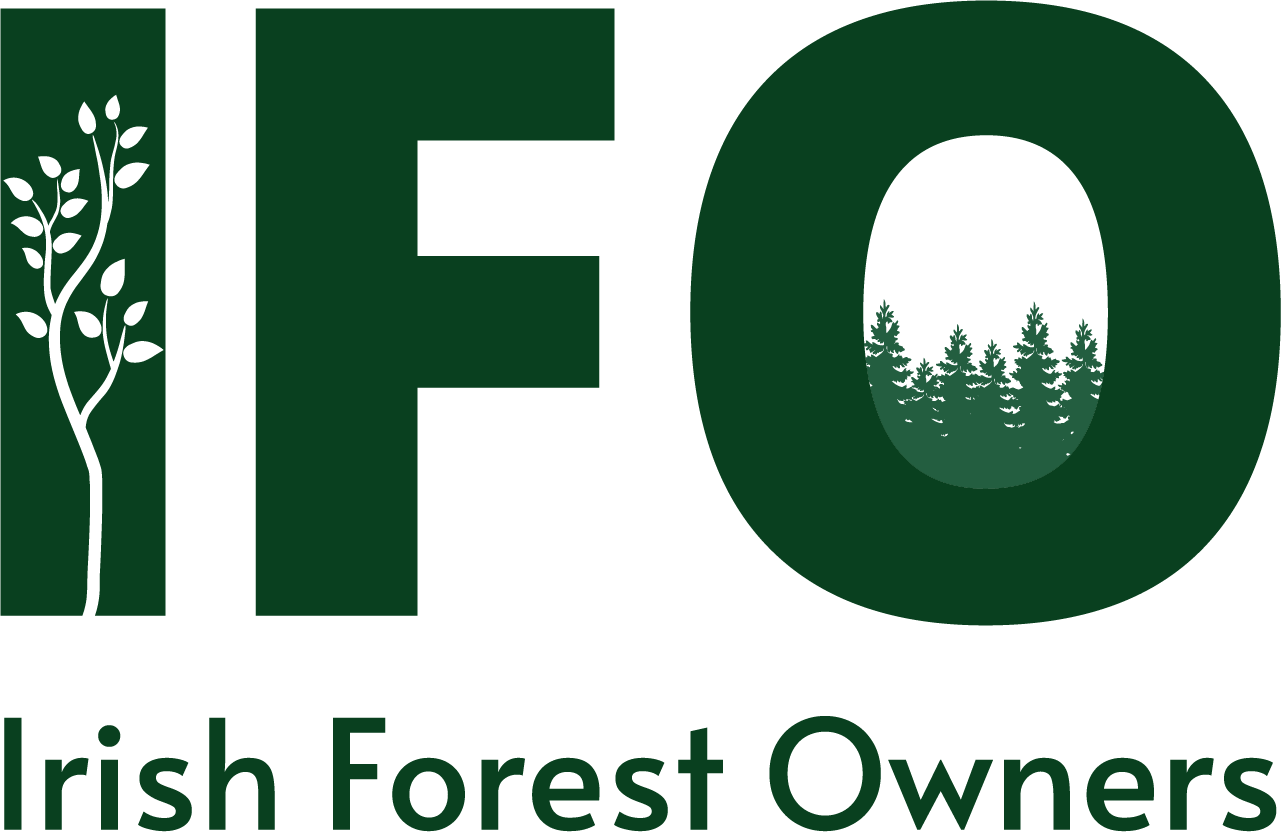As this is my last meeting as Chair of IFO, I do want to say that it has been a privilege to chair this body for the last 3 years
The commitment of the steering committee to our initial weekly meetings and our current fortnightly sessions has been exemplary and we have never once failed to get a quorum in all that time.
I feel we have come a long way in the past 3 years and are now firmly established as an important voice in the Irish Forest industry at local, national and indeed recently, European level.
In my final report, I’m going to try to address some of the reasons why I still feel farmers should get involved in forestry.
Reasons to get involved in forestry
- Profitability. Commercial forestry is the second most profitable farm enterprise after dairying. Whether your commercial softwood forest is multiple rotations or managed under continuous cover it can be expected to yield a gross income of around €40,000 per hectare over a 35-year period when premiums and timber harvested are aggregated.
- Environment. Forestry is the most environmentally beneficial enterprise in terms of carbon sequestration that you can be involved in….far in excess of any other farm enterprise including organic farming.
- Biodiversity. Properly managed forestry is far better for biodiversity than any of the other mainstream farm enterprises.
- Water. Forestry is also very good for water quality despite getting bad press from some ill-informed sources. Indeed, planting riparian zones could alleviate many of the current problems with nutrient leakage.
- Alternative land stewardship. Forestry is very suitable for landowners who cannot afford to work full time on their farms.
- Alternative enterprises. Forestry has already huge scope for alternative enterprise development…from forest walks to bike trails, glamping to nature study classrooms; a forest has multi-purpose benefits without even considering the future prospects concerning carbon farming.
My view therefore is that we should continue to encourage landowners to plant trees despite the many issues which still bedevil the industry.
Issues
What are those issues that need to be addressed?
The number one issue is a failure of political purpose. Despite the current government climate strategy having Forestry at its core, there has been a total lack of real commitment to solving the well-known problems that have bedevilled the forest industry for too many years now.
The regulation overload that has caused so much current angst in European agriculture in general and in the Irish forest industry in particular has not been seriously tackled in any real way. This can only be remedied at political level…If we want to move from 11% afforested land to 18% afforested land and if our government sees this as essential for our climate strategy, then the government must frame the regulations in a manner that makes that possible. Instead, our government simply apportion blame to Europe as if there was a European conspiracy to make us miss our climate targets.
When it suits their political purpose to ignore European regulations they do so, as can be clearly seen in their refusal to ban all turf harvesting which is simple environmental sabotage.
When they need to argue that many of the regulations are counterproductive to climate sustainability, as they are in the case of forest licensing, they do nothing!
Failures concerning Forestry policy cannot just be blamed on the Forest Service. Policy is for politicians to formulate and deliver on. Successive ministers for Forestry have simply not delivered.
The individual issues in the forest industry are all capable of resolution in my view. I do believe there is a desire in the Forest Service to move the industry forward. Unfortunately, the political will to do so is clearly lacking.
The many existing problem issues, which include everything from the Ash Dieback debacle to lack of trained forestry workers and foresters, cannot be left on the long finger any more. Last year was the worst in 70 years in terms of Afforestation. Unless we do what is necessary to restore confidence and get the industry motoring again, 2024 will be no better.
The New Forest Programme has faults but there are sufficient good options within it to enable every landowner interested in forest investment to have reason to plant trees. I believe we need to continue to agitate for real change while at the same time realising that investment in forestry remains an excellent option in most situations.
Finally, I want to briefly mention the issue of Certification.
Certification for private forest owners is becoming an essential tool for accessing the timber market. IFO are involved in a pilot project to tackle this issue and we believe that we can become a viable conduit for the provision of certification for any or all of our members. As a “not for profit” land owner-based body we are ideally placed to lead the way in promoting a national scheme. I believe the aim of providing such a scheme should be at the top of our current immediate agenda.
Before I sign off, I want to thank my fellow officers for their trojan work over the last 3 years. Our secretary Olive and treasurer John have worked tirelessly on your behalf and it has been said with great tolerance of the unreasonable demands I have often made on their time. A word of thanks also for Sean who has stepped in to chair meetings whenever I wasn’t available and has always provided stalwart and good-humoured support. Each of the other past and present members of the steering committee have played their part in their own way in delivering for us all.
I wish Derek well for his tenure as chair. I know he will enjoy as much support from the steering group as I have. I believe we have only started to scale some small hills in IFO …there is a mountain to climb still.
Thank you very much.
Nicholas Sweetman
Chairperson, IFO



